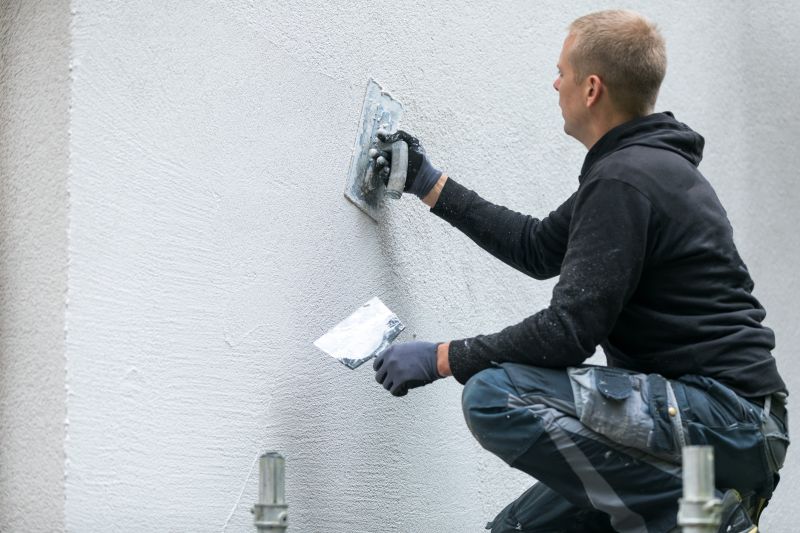Favorite Wall Pouring Service Tools For Efficient Construction Projects
Select the most popular and effective products that help you achieve smooth, accurate wall pours every time.
 Wall pouring services are essential in various construction and renovation projects, providing a seamless and durable finish to interior and exterior walls. These services often involve specialized products and tools designed to ensure smooth application, proper adhesion, and long-lasting results. Whether working on new builds or refurbishments, selecting the right products for wall pouring can significantly influence the quality and efficiency of the project.
Wall pouring services are essential in various construction and renovation projects, providing a seamless and durable finish to interior and exterior walls. These services often involve specialized products and tools designed to ensure smooth application, proper adhesion, and long-lasting results. Whether working on new builds or refurbishments, selecting the right products for wall pouring can significantly influence the quality and efficiency of the project.
Top Overall Option
Premium Wall Pouring Compound
A versatile and reliable wall pouring compound designed for a wide range of applications. It offers smooth consistency, excellent adhesion, and ease of application, making it suitable for both professional contractors and DIY enthusiasts. Its formulation ensures a durable finish that adapts well to different wall substrates, providing a solid foundation for subsequent finishes.
Types of Products For Wall Pouring Service
Wall Pouring Concrete Mix
Pre-mixed concrete designed specifically for wall pouring, offering consistency and ease of use for structural applications.
Fluid Wall Plaster
A smooth, flowable plaster ideal for creating seamless wall surfaces and decorative finishes.
Resilient Wall Sealant
Sealants formulated to prevent cracks and water ingress, ensuring long-term durability of poured walls.
Rapid-Set Wall Patch
Quick-curing patch compounds suitable for repairing and leveling wall surfaces before pouring.
Flexible Wall Coatings
Coatings that provide elasticity and crack resistance for walls subject to movement or settling.
High-Strength Wall Primer
Primers designed to enhance adhesion of pouring compounds to various wall substrates.
Trowel and Finishing Tools
Specialized tools for smoothing and finishing poured wall surfaces for a professional look.
Pouring Support Formwork
Reusable molds and forms that shape and support the poured material during setting.
Insulating Wall Coatings
Products that incorporate insulation properties to improve thermal performance of poured walls.
Decorative Wall Overlay
Overlay products that add texture or decorative finishes to poured surfaces.
Waterproofing Membranes
Membranes applied before pouring to prevent water intrusion and protect the wall structure.
Lightweight Pouring Mixes
Lightweight formulations suitable for reducing load on structures while maintaining strength.
High-Flow Pouring Products
Products with high flowability for easier application in complex forms or tight spaces.
Eco-Optimized Wall Products
Materials formulated for optimal performance with minimal environmental impact.
Popular Choices
Widely used for various wall pouring projects, offering good workability and finish quality.
Popular for quick repairs and patching before pouring or finishing walls.
Commonly chosen for sealing joints and preventing cracks in poured surfaces.
Convenient for consistent results in wall pouring projects with minimal mixing required.
Favored for its ease of application in complex or large-scale projects.
Popular for exterior walls or areas exposed to moisture, providing a protective barrier.
Chosen for projects requiring reduced load without compromising strength.
Used to add texture or aesthetic finishes to poured walls, enhancing visual appeal.
Essential for preparing surfaces to improve bonding of pouring compounds.
Commonly selected for achieving smooth, professional finishes on poured walls.
Popular for shaping and supporting poured materials in various wall projects.
Chosen for thermal insulation properties in wall pouring applications.
The process typically requires a combination of materials such as wall pour compounds, primers, sealants, and finishing tools. These products are formulated to adhere well to different wall substrates, including concrete, drywall, or brick, and to accommodate various environmental conditions. Proper preparation and application techniques are crucial for achieving optimal results, making the right product selection vital for contractors and DIY enthusiasts alike.
In addition to the basic materials, there are specialized products designed for specific wall types or desired finishes. For instance, some compounds are formulated for rapid setting, while others offer enhanced flexibility or crack resistance. Accessories such as mixing tools, trowels, and finishing sponges are also important to ensure a smooth, professional-looking surface. Understanding the different product variations and their applications can help users make informed choices tailored to their project needs.
Ultimately, investing in high-quality, compatible products for wall pouring can facilitate a more efficient workflow and contribute to the durability of the finished surface. Careful consideration of product specifications, compatibility with existing wall materials, and environmental conditions can help achieve a successful outcome. Whether for commercial or residential projects, the right selection of products is key to delivering a clean, resilient, and aesthetically pleasing wall finish.
Key Buying Considerations
- Compatibility with existing wall materials and substrates
- Curing time and workability of the product
- Desired finish texture and appearance
- Environmental conditions during application (humidity, temperature)
- Strength and durability requirements of the finished wall
- Ease of mixing and application tools needed
- Adhesion properties to prevent future cracking or separation
- Water resistance and waterproofing capabilities
- Flexibility and crack resistance features
- Weight of the product, especially for overhead or load-bearing walls
- Compatibility with primers or sealants used in the process
- Cost-effectiveness and overall project budget
- Availability of support or technical assistance from suppliers
- Environmental impact and safety considerations during application
- Post-application finishing options and aesthetic preferences
